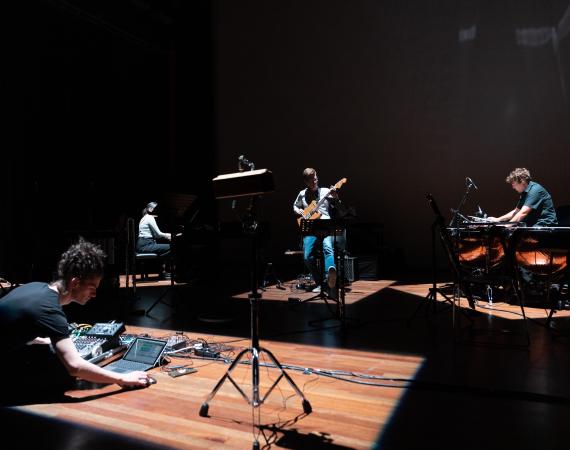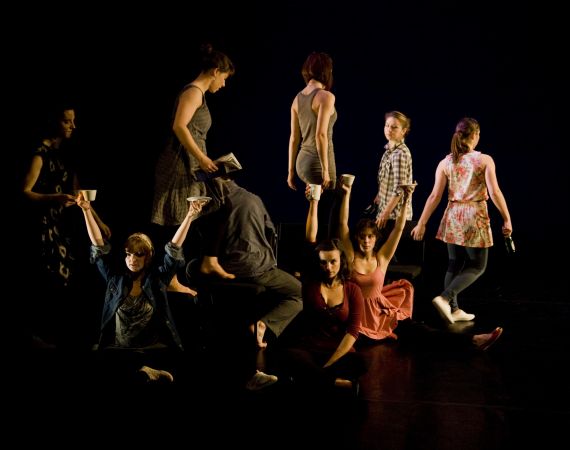Improvised Human Machine Conversations - Instrumental Extensions and Amputations
Craig Scott is the recipient of Watershed's Patterns in Practice Residency - an opportunity to develop artistic ideas and conversations exploring data mining and machine learning.

Studio press shot - Peter Gavin. Live with Nadar Ensemble at Gaudeamus Festival, Netherlands - Herre Vermeer
Made by

Craig Scott
Performer, composer and creative technologist Craig Scott creates sound works for human and non-human performers.Working with

Martin O'Leary
As Studio Community Lead, Martin supports our community of residents in their creative and technical work.
Victoria Tillotson
Victoria is Watershed's Talent Development Lead, supporting a phenomenal team of producers, editors and content creators to make an actual difference in the world.Sambourne Bush
Samborne Bush is a research associate on ‘Patterns in Practice’ which examines cultures, values and beliefs in practitioners’ use of machine learning.Erinma Ochu
Dr Erinma Ochu is Wallscourt Associate Professor of Immersive Media in the College of Art, Technology and Environment at UWE. They are a member of the DCRC and teach on the Virtual and Extended Realities MA.Jo Bates
Jo is principal investigator on Patterns in Practice. Her research has examined how socio-cultural and political economic factors shape data flows, data practices and data policy. She is interested in issues of power and how beliefs about data and society shape how people imagine and work with data.Craig Scott is the recipient of Watershed's Patterns in Practice Residency - an opportunity to develop artistic ideas and conversations exploring data mining and machine learning. The Residency is part of a wider research project led by the University of Sheffield and the University of the West of England in partnership with Watershed, that seeks to understand how practitioner beliefs, values and emotions shape practitioner engagements with machine learning in drug discovery, higher education, and the arts.
Craig's research project - Improvised Human Machine Conversations - Instrumental Extensions and Amputations - explores our evolving human relationship with technological appendages, its effect on personal and collective mental health, perception of reality and how we relate to our own bodies, tools and each other.
Craig Scott says:
“During this residency I am excited to explore using machine learning and curated data sets to partially control instruments that are simultaneously played by an improvising musician. I plan on using machine learning as a real time response to the improvising musician to explore how dataset bias affects real world outcomes.
Within the sandbox of compositional/improvisational musical approaches I will also explore the uncanny feedback loop/folding between machines made to emulate humans and humans performers emulating machines. The instrumental/bodily extensions and amputations that result from these new automated technological appendages and the felt (from both improvising musicians and listeners point of view) experience of interacting/playing with datasets trained on and imposing specific defined musical value systems.”
This short clip shows an improvised human/machine duet using a Semi-Automated electric guitar designed and built by Craig.
More about the Patterns in Practice research project
Patterns in Practice is a research project led by the University of Sheffield and the University of the West of England in partnership with Watershed, funded by UKRI. The project seeks to enhance understanding of how human beliefs, values and feelings affect how we engage with data mining (the practice of analysing large databases in order to generate new information) and machine learning (computer systems that are able to learn and adapt without following explicit instructions, by using algorithms and statistical models to analyse and draw inferences from patterns in data).
After three years of talking with people in the fields of drug discovery, higher education and the arts – the partners in the project have gained a wealth of insight and material about the data cultures that emerge when information, machine processes and people come together. This residency is an opportunity for Craig to delve into the research and develop artwork in response to what he finds.





